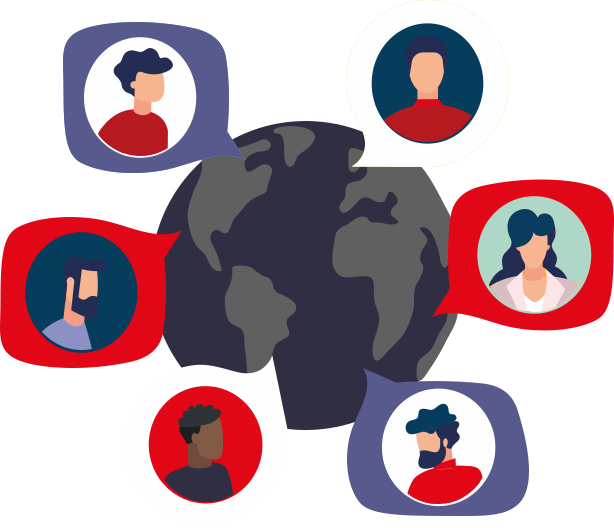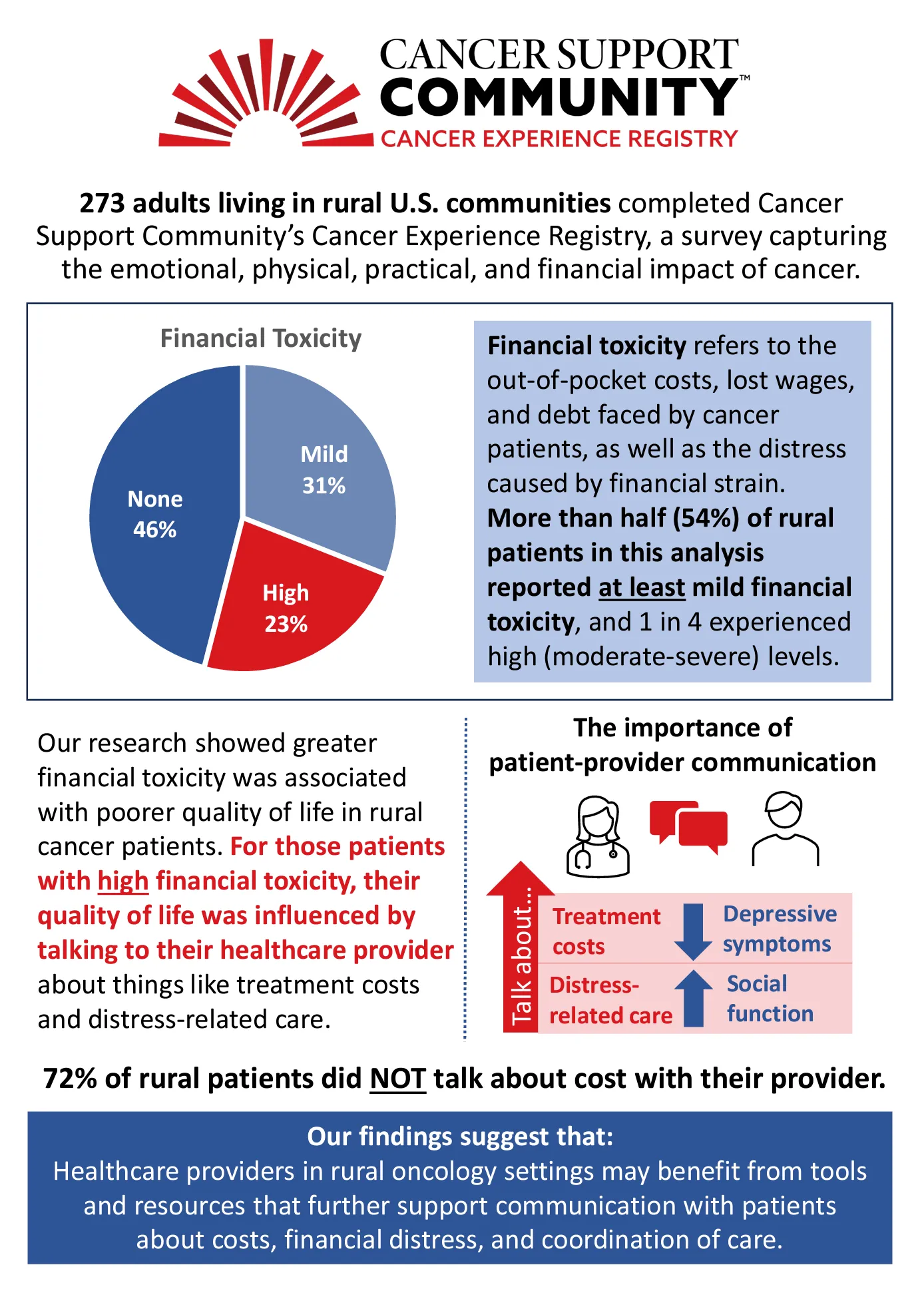
Publications & Presentations
The Cancer Support Community is a leader in research on the patient, survivor, and caregiver experience. Our work appears in posters and presentations shared at professional conferences, published articles in preeminent peer-reviewed journals, educational materials for patients and caregivers, and comprehensive research reports to help inform cancer care and patient advocacy.

Use the search filters below to discover our research findings on diverse topics related to patient and caregiver quality of life, including:
- Psychosocial well-being and symptom management
- Patient-provider communication
- Treatment options
- Patient advocacy
- Financial toxicity and other barriers to health equity
- Experiences and perspectives on precision medicine
People with chronic myeloid leukemia (CML) are living longer, yet they can be challenged by disease complications, adverse effects of treatment, and lifelong drug therapy. CML symptoms and treatment side effects (SEs) are often chronic, and patients may need care from a multidisciplinary team of specialists.
Over 20,000 new cases of chronic lymphocytic leukemia (CLL) are expected in the US in 2017, yet understanding of the psychosocial consequences of CLL is inadequate. Treatment options vary, and many people live a long time with CLL, yet early treatment has not been shown to help people live longer. Consequently, many people undergo a period of active surveillance ("watch and wait") until symptoms appear before starting treatment.
